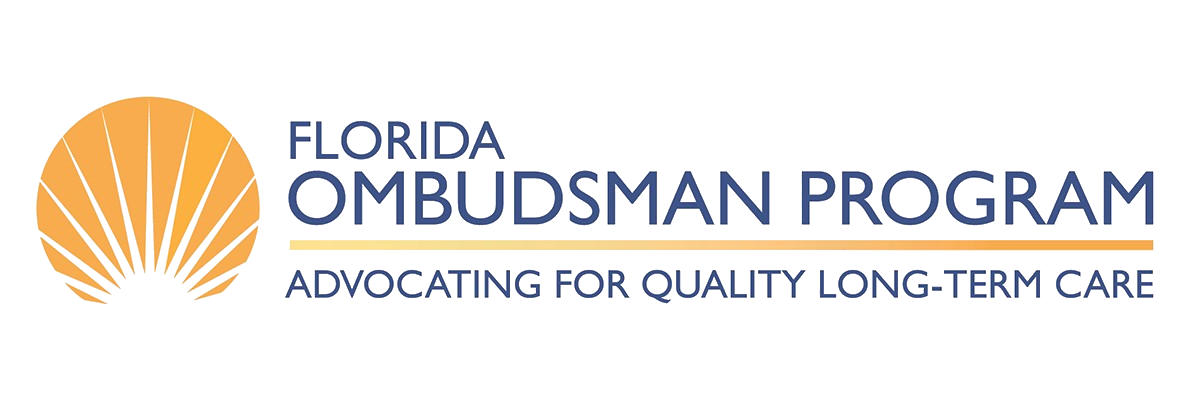Residents’ Rights

When admitted to a long-term care facility, an individual maintains his or her rights as a citizen and also gains a special set of residents’ rights, which are mandated by federal and state law. These rights are outlined based on the type of facility (nursing homes, assisted living facilities and adult family care homes).
For Residents of Nursing Homes
According to Section 400.022, Florida Statutes:
Nursing home facilities shall adopt and make public a statement of the rights and responsibilities of the residents and shall treat such residents in accordance with the provisions of that statement. Each resident shall have the right to:
- Civil and religious liberties.
- Private and uncensored communication.
- Visitation by any individual providing health, social, legal, or other services and the right to deny or withdraw consent at any time.
- Present grievances and recommend changes in policies and services free from restraint, interference, coercion, discrimination, or reprisal. Includes the right to have access to the ombudsmen and other advocacy groups.
- Organize and participate in resident groups.
- Participate in social, religious, and community activities that do not interfere with the rights of others.
- Examine results of recent facility inspections by federal and state agencies including the plan of correction if applicable.
- Manage his/her own financial affairs. A quarterly accounting will be furnished to resident or legal representative.
- Be fully informed, in writing and orally, of services available at the facility and of related charges for such services.
- Refuse medication and treatment and to know the consequences.
- Receive adequate and appropriate health care, protective and support services within established and recognized standards.
- Privacy in treatment and in caring for personal needs.
- Be informed of medical condition and proposed treatment and be allowed participation in planning.
- Be treated courteously, fairly, and with the fullest measure of dignity.
- Be free from mental and physical abuse, corporal punishment, extended involuntary seclusion, and from physical and chemical restraints except those ordered by resident’s physician.
- Be transferred or discharged only for medical reasons, the welfare of other residents or nonpayment of a bill.
- Receive a thirty (30) day written notice of discharge or relocation, and challenge such notice.
- Choose physician and pharmacy.
- Retain and use personal clothing and possessions.
- Have copies of rules and regulations of the facility.
- Notification prior to room change.
- Information concerning bed-hold policy for hospitalization.
Also, federal law prevents nursing homes from discharging (removing) or transferring (moving to another facility) a resident except for the following reasons:
- The resident’s welfare cannot be met at the facility.
- The resident’s health has improved sufficiently so the resident no longer needs the services provided by the facility.
- The health or safety of individuals is endangered.
- The resident has failed, after reasonable and appropriate notice, to pay or have paid under Medicare or Medicaid for residence at the facility.
- The facility closes.
A nursing home must give residents 30 days written notice prior to discharge or transfer. A resident who thinks the above rights have been violated must request a hearing in writing within 90 days by sending the form given to them by the facility to: Office of Appeals Hearings, 1317 Winewood Boulevard, Building 5, Room 203, Tallahassee, FL 32399-0700. (Telephone: 1-850-488-1429)
Requesting a hearing within 10 days stops the removal of the resident until the hearing process is completed. A nursing home resident may request assistance from the Long-Term Care Ombudsman Program by calling toll-free 1-888-831-0404.
For Residents of Assisted Living Facilities and Adult Family Care Homes
According to Section 429.28 and 429.85, Florida Statutes:
No resident of a facility shall be deprived of any civil or legal rights, benefits, or privileges guaranteed by law, the Constitution of the State of Florida, or the Constitution of the United States as a resident of a facility. Every resident shall have the right to:
- Live in a safe and decent living environment, free from abuse and neglect.
- Be treated with consideration, respect and with due recognition of personal dignity, individuality, and the need for privacy.
- Retain and use his/her own clothes and other personal property.
- Unrestricted private communication including receiving and sending unopened correspondence, access to a telephone, and visiting with any person of his or her choice, at any time between the hours of 9 a.m. and 9 p.m. at a minimum.
- Participate in and benefit from community services and activities to achieve the highest possible level of independence, autonomy, and interaction with the community.
- Manage his/her own financial affairs unless the resident (or the resident’s legal representative) authorizes the administrator of the facility to provide safekeeping for funds.
- Share a room with spouse if both are residents of the facility.
- Reasonable opportunity to exercise and to go outdoors at regular and frequent intervals.
- Adequate and appropriate health care consistent with established and recognized standards.
- Exercise civil and religious liberties including personal decisions. No religious beliefs, practices, nor attendance at religious services, shall be imposed on any resident.
- Thirty (30) days notice to AFCH residents and forty-five (45) day notice to ALF residents of relocation or termination of residency except in cases of emergency.
- Present grievances and recommend changes in policies, procedures, and services to the staff of the facility without restraint, interference, coercion, discrimination, or reprisal. This right includes access to ombudsmen volunteers and advocates and the right to be a member of, to be active in, and to associate with advocacy or special interest groups.
- (ALF) Be free from physical and chemical restraints other than those prescribed by the resident’s physician. The use of physical restraints shall be limited to half-bedrails and only upon the written order of the resident’s physician and the consent of the resident or the resident’s legal representative. [S. 429.41(1)(k)].
- (AFCH) Be free from chemical and physical restraints. [S. 429.85(1)(k)].
Also, every assisted living facility resident shall have the right to at least 45 days’ notice of relocation or termination of residency from the facility unless, for medical reasons, the resident is certified by a physician to require an emergency relocation to a facility providing a more skilled level of care or the resident engages in a pattern of conduct that is harmful or offensive to other residents. In the case of a resident who has been adjudicated mentally incapacitated, the guardian shall be given at least 45 days’ notice of a non-emergency relocation or residency termination. Reasons for relocation shall be set forth in writing. In order for a facility to terminate the residency of an individual without notice as provided herein, the facility shall show good cause in a court of competent jurisdiction.
Every adult family care home resident shall have the right to at least 30 days’ notice of relocation or termination of residency from the home unless, for medical reasons, the resident is certified by a physician to require an emergency relocation to a facility providing a more skilled level of care or the resident engages in a pattern of conduct that is harmful or offensive to other residents. If a resident has been adjudicated mentally incompetent, the resident’s guardian must be given at least 30 days’ notice, except in an emergency, of the relocation of a resident or the termination of a residency. The reasons for relocating a resident must be set forth in writing.
An assisted living facility resident or adult family care home resident may request assistance from the Long-Term Care Ombudsman Program by calling toll-free 1-888-831-0404.

